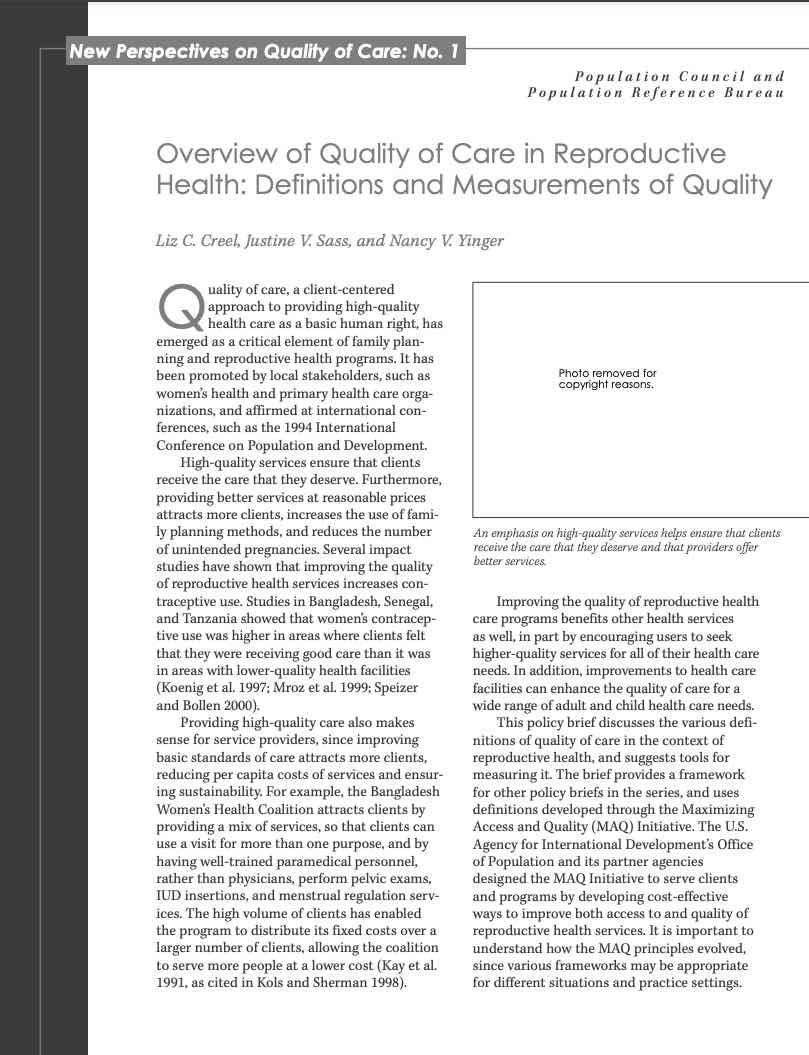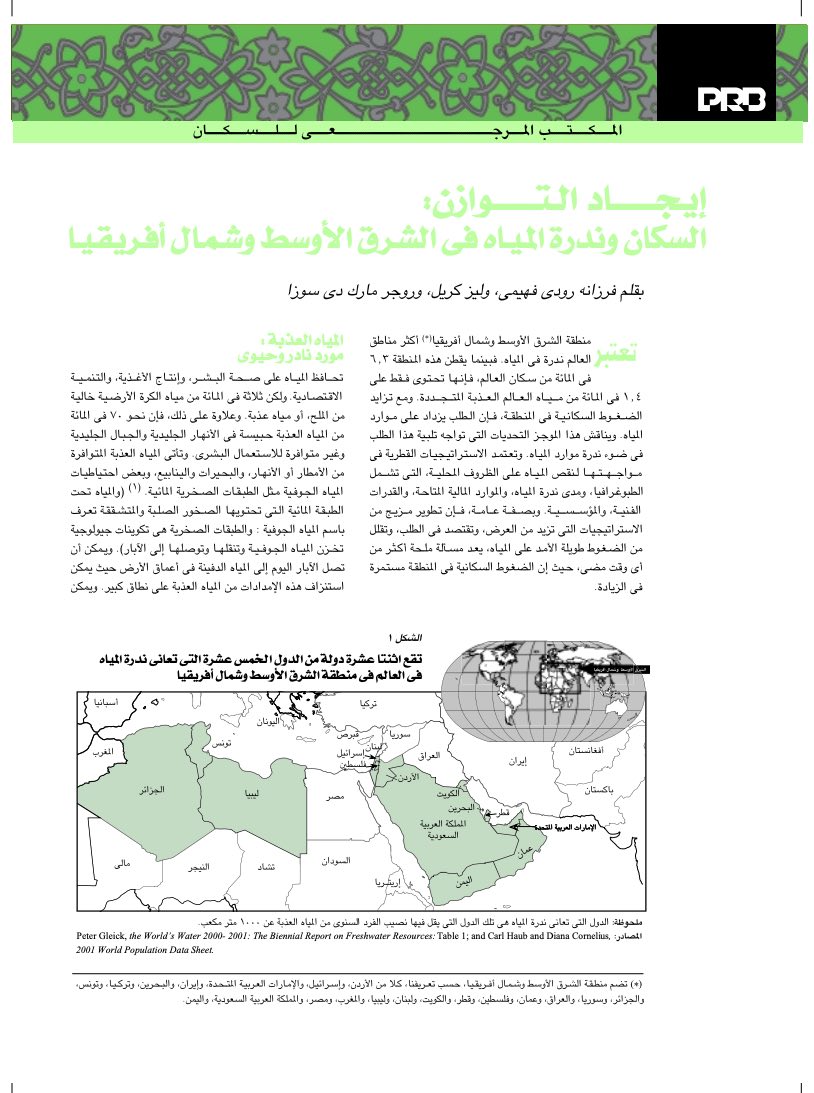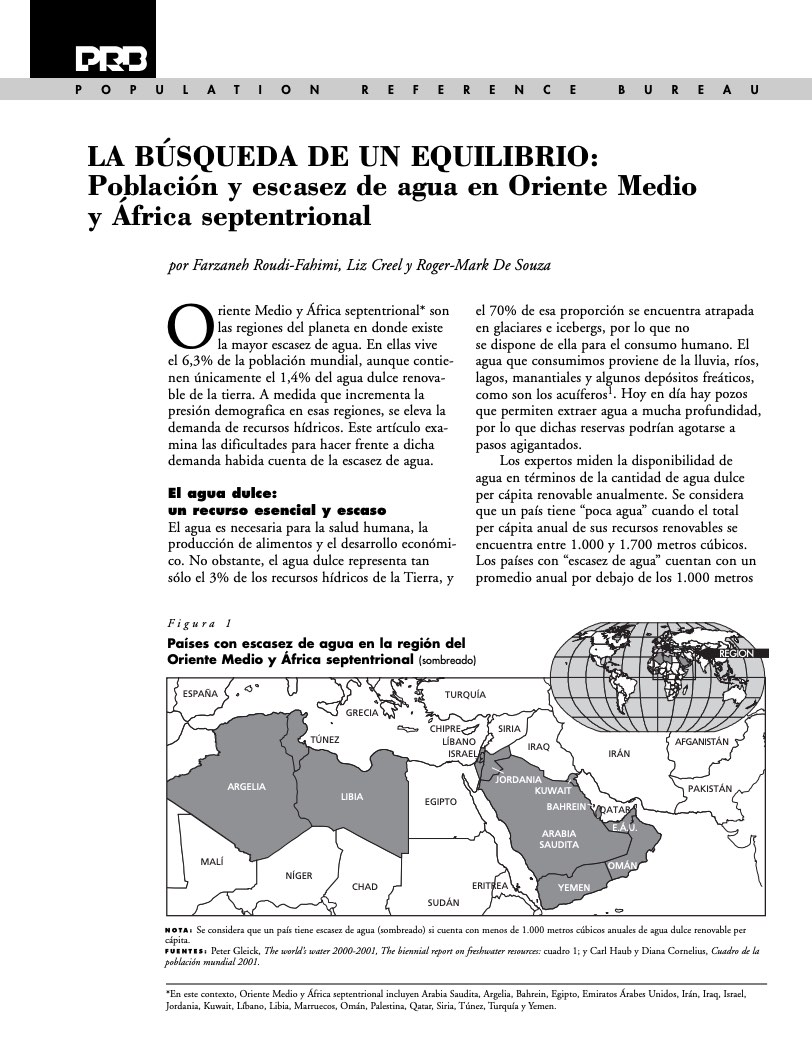Overview of Quality of Care in Reproductive Health: Definitions and Measurements of Quality
(2002) Quality of care, a client-centered approach to providing high-quality health care as a basic human right, has emerged as a critical element of family planning and reproductive health programs.




